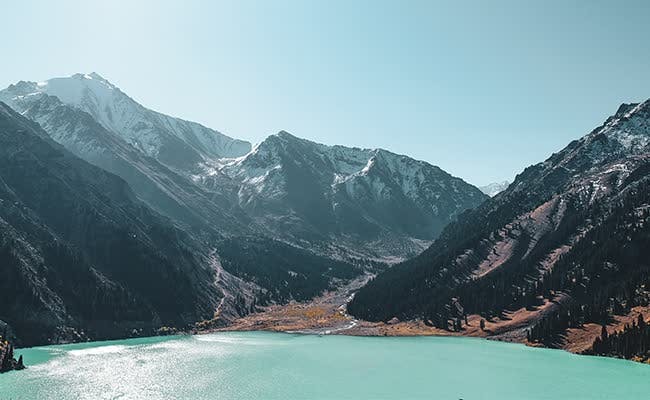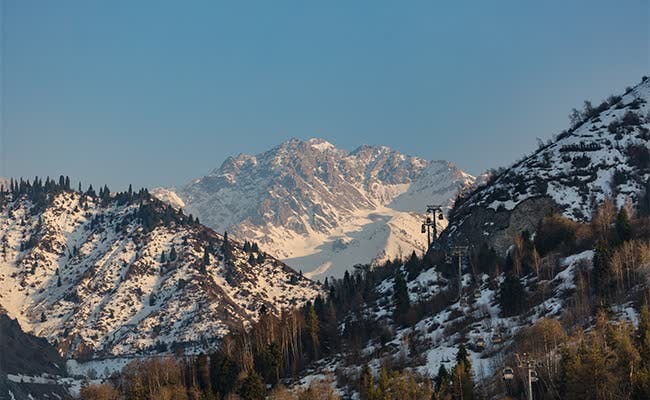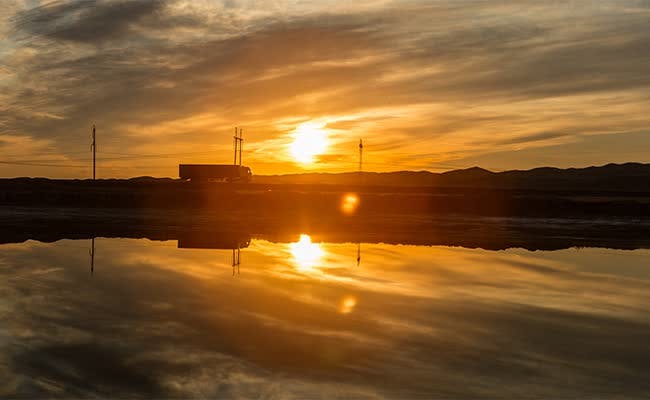Almaty city
Almaty, formerly known as Alma-Ata, is the largest city in Kazakhstan and serves as the country's cultural, economic, and financial hub. It is located in the southeastern part of the country, near the border with Kyrgyzstan, and is surrounded by the beautiful Zailiyskiy Alatau mountain range. Almaty is known for its stunning natural scenery, diverse cultural attractions, and modern amenities.
Here are some key features and information about Almaty:
Geography and Scenery: Almaty is situated at the foothills of the Trans-Ili Alatau mountains, which offer excellent opportunities for outdoor activities such as hiking, skiing, and snowboarding. The city is known for its picturesque mountain landscapes and lush parks.
Climate: Almaty has a continental climate with hot summers and cold winters. The city enjoys a relatively mild climate compared to other parts of Kazakhstan, making it a popular destination year-round.
Cultural Diversity: Almaty is a melting pot of various ethnic groups, including Kazakhs, Russians, Uighurs, and many others. This diversity is reflected in the city's culture, cuisine, and traditions.
Cultural Attractions: Almaty boasts numerous cultural attractions, including museums, galleries, theaters, and historic sites. The Central State Museum of Kazakhstan, the Almaty Opera and Ballet Theater, and the Museum of Fine Arts are some of the notable institutions.
Parks and Gardens: The city is home to several beautiful parks and gardens. The Panfilov Park, with its iconic Zenkov Cathedral, is a popular place for leisure and relaxation.
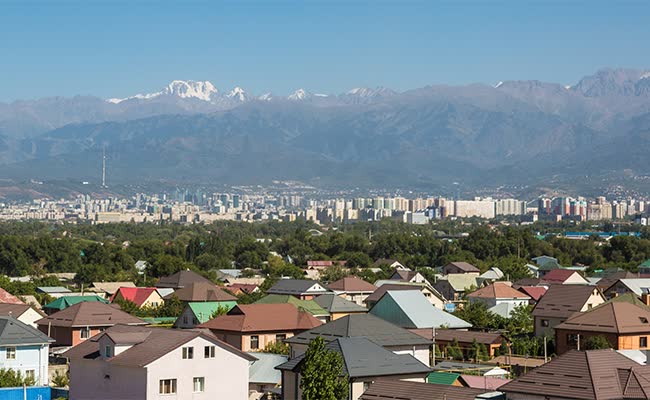
Almaty Tower: The Almaty Television Tower is an iconic landmark and one of the tallest free-standing structures in the world. Visitors can go to the observation deck for panoramic views of the city and the surrounding mountains.
Almaty Zoo: The Almaty Zoo is home to a wide variety of animals and provides a family-friendly outing option.
Kazakh Cuisine: Almaty is known for its diverse culinary scene, offering a wide range of restaurants serving traditional Kazakh and international dishes. Be sure to try local specialties like Beshbarmak and Shashlik.
Shopping: The city offers various shopping opportunities, from bustling bazaars to modern shopping malls. The Green Bazaar is a must-visit for experiencing local food and products.
Winter Sports: In the winter, Almaty is a hub for winter sports enthusiasts. Shymbulak Ski Resort and Medeu Ice Skating Rink are popular destinations for skiing, snowboarding, and ice skating.
Nightlife: Almaty has a vibrant nightlife with numerous bars, clubs, and entertainment venues that come to life after dark.
Education and Research: The city is home to some of Kazakhstan's top universities and research institutions, making it an important center for education and innovation.
Transportation: Almaty is well-connected by air, with the Almaty International Airport serving as one of the busiest airports in Central Asia. The city also has an extensive public transportation system, including buses and a metro system.
Almaty is a dynamic and modern city that seamlessly combines its natural beauty with a vibrant urban environment. It is a popular destination for tourists and a significant cultural and economic center in Kazakhstan.
History of Almaty
The history of Almaty, the largest city in Kazakhstan, is a rich tapestry that spans centuries and reflects the city's transformation from a small trading post to a modern metropolis. Here is an overview of Almaty's historical development:
Ancient and Medieval Periods:
- Almaty's history can be traced back to ancient times when it was inhabited by nomadic tribes, including the Saka and Kangju.
- The Silk Road, a network of trade routes, passed through the region, bringing cultural exchanges and economic activity to the area.
- In the 13th century, the Mongols under Genghis Khan conquered the region, incorporating it into the Mongol Empire.
Russian Colonial Period:
- In the 19th century, Almaty was part of the Russian Empire's expansion into Central Asia. It was a key hub along the Great Silk Road.
- The city was officially founded in 1854 as the Russian fort of Verny. It served as a military outpost and trading center.
Soviet Era:
- After the Russian Revolution of 1917, Almaty became the capital of the Kirghiz Autonomous Soviet Socialist Republic, which later evolved into the Kazakh Soviet Socialist Republic.
- During the Soviet era, Almaty was known as Alma-Ata and played a significant role as an administrative, cultural, and educational center.
Kazakh Independence:
- When Kazakhstan gained independence from the Soviet Union in 1991, Almaty served as the country's capital for nearly a decade.
- In 1997, the capital was moved to the newly established city of Akmolinsk, which was later renamed Astana
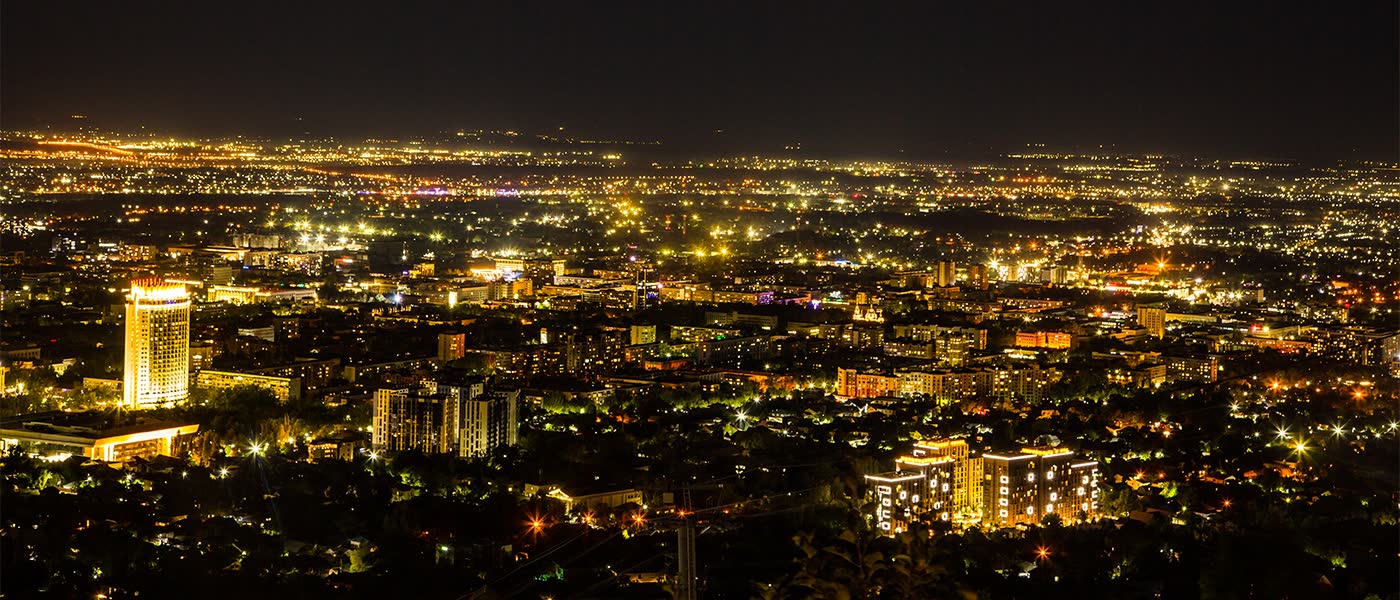
Modern Almaty:
- Today, Almaty is the largest city in Kazakhstan and serves as the country's economic, cultural, and financial hub.
- The city has experienced rapid urbanization and modernization, with the construction of new infrastructure, skyscrapers, and cultural institutions.
- Almaty remains a center of cultural diversity, with a mix of Kazakh, Russian, Uighur, and other ethnic groups contributing to the city's unique cultural tapestry.
- The city is surrounded by the stunning Zailiyskiy Alatau mountain range, offering opportunities for outdoor activities and tourism.
Throughout its history, Almaty has witnessed various transformations, from a nomadic crossroads to a colonial outpost and, later, to a thriving modern city. The city's history is a testament to the enduring influence of different cultures and the resilience of its inhabitants in adapting to changing circumstances. Today, Almaty stands as a dynamic and cosmopolitan city that bridges the gap between its historical legacy and a promising future.
RELATED DESTINATIONS
Issyk Lake is a picturesque alpine lake located in the Issyk Gorge of the Zailiyskiy Alatau mountain range, near the city of Almaty in Kazakhstan. Here are some key details about Issyk Lake:
The Ile-Alatau National Park, also known as Ile-Alatau State National Natural Park, is a protected area located in the northern Tien Shan Mountains of Kazakhstan. This national park is known for its diverse and stunning natural landscapes, including alpine meadows, mountain peaks, glacial lakes, and unique flora and fauna.
Lake Balkhash, also spelled as Balkhash, is one of the largest and most significant lakes in Central Asia. It is a unique and important water body, known for its size, geological history, and its role in the environment and economy of Kazakhstan.
